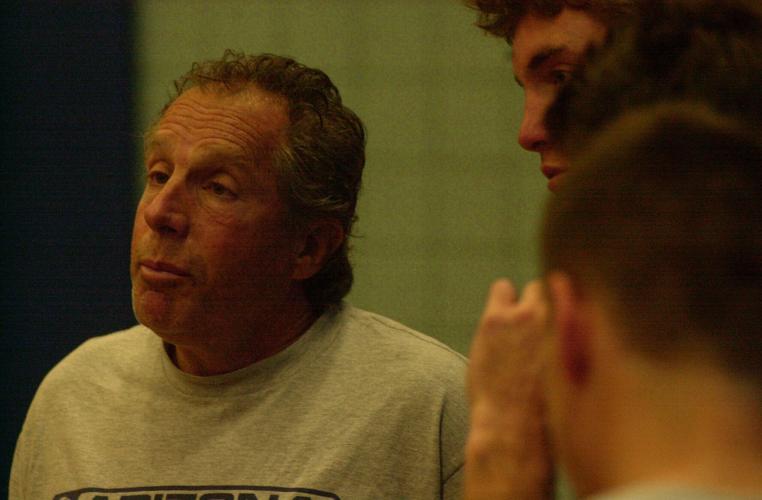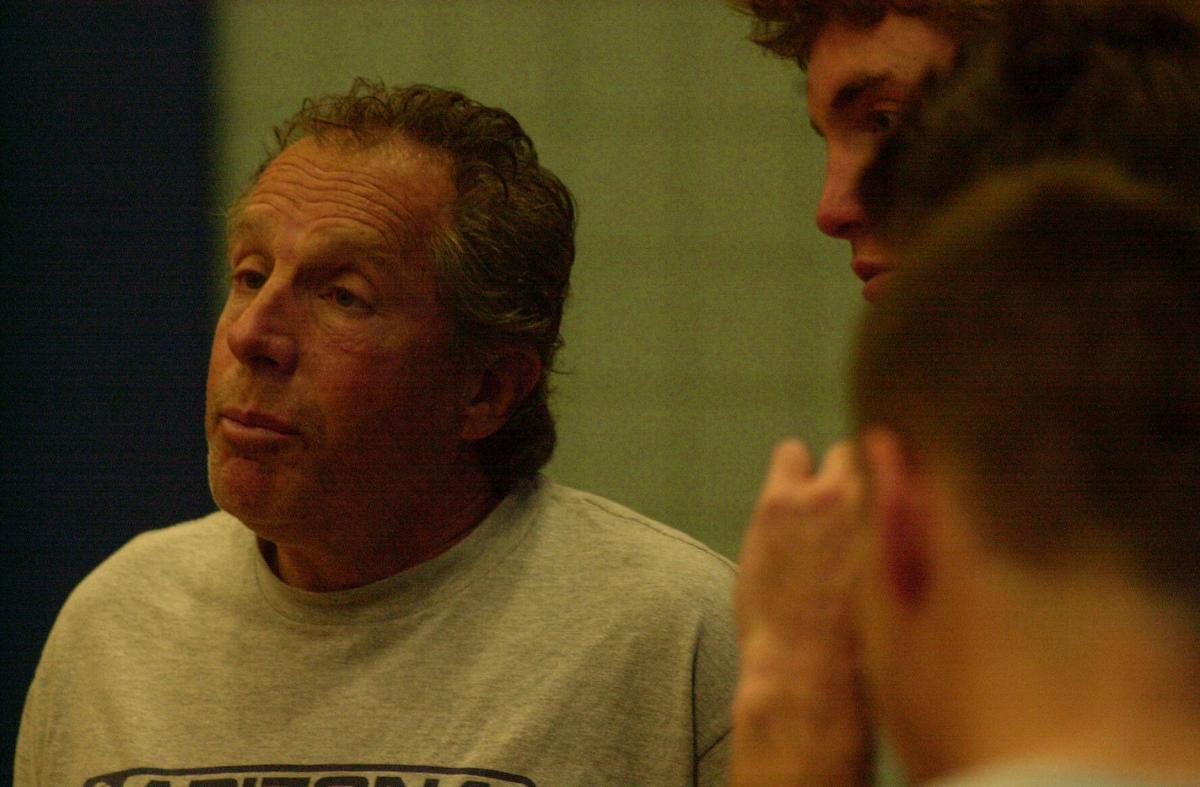Arizona had two future USA Olympic volleyball players on its 1984 and 1985 NCAA Tournament teams, Melissa McLinden and Caren Kemner, which helped to put Wildcat alumnus and assistant coach Steve Carlat on the map.
After the ‘85 season, Utah State hired Carlat to be its head coach and in effect told him the cupboard was bare. Really bare.
The Aggies went 1-31 in Carlat’s first season at USU. If that’s not rock bottom, what is?
But it was also the beginning of his climb to being a back-to-back national champion.
After leaving Utah State in 1991, Carlat returned to Tucson as a volunteer assistant for new UA volleyball coach Dave Rubio. He stayed with Rubio through 1996, a period in which the Wildcats twice reached the Sweet 16. It was about that time that Carlat, a 1968 UA grad from Southern California, was offered a position coaching the UA men’s club volleyball team.
College club volleyball might not have sounded like anything more than an after-work sidelight, but it was full-time and then some. The Wildcats would soon become a national powerhouse, capturing the 1999 and 2000 national titles and winning 82 straight games against other club volleyball teams.
UA student and volleyball fan/promoter Skip Greenberg and his father were hopeful that Arizona would add men’s volleyball as a full-time sport, and to do so put together a six-figure sponsorship package to gather momentum.
“The funding was significant enough so we could offer scholarships, equal to what the D-I programs were allowed,” Carlat remembers now. “We had travel funds to attend tournaments nationally, and a small paycheck for me. Over the summer of ‘98, we arranged a program to reflect what other NCAA D-I schools had to work with, and also began to recruit student-athletes.”
To make ends meet, Carlat was a special education teacher at Amphitheater High School.
His UA volleyball team soon took flight. With 1999 national MVP Vince Rooney and other top players like Keith Robinson, Jeff Grobe, Andrew Jaekle, Ryan Taylor and Turner Elliott, Arizona became a force. In one stretch, Carlat’s team went 148-13, and beat Pac-12 varsity teams Stanford and UCLA.
Now retired and living in Tucson, Carlat recalls how his club team became a two-time national champion.

“When word circulated about our program elevating itself, we recruited some graduate students, former college players, and along with 10 or so current club members plus new players selected through a tryout,” he says. Club players were allowed six years of eligibility if they were working toward a graduate degree.
Some, like Rooney, had to work to pay for school. Rooney was a waiter at a Tucson restaurant; he then got a job in a computer lab, but still had to take out a student loan to attend school while becoming the nation’s top club volleyball player.
“We were given a two-hour block, three days a week at the student recreation center to practice,” says Carlat. “We arranged for a grad student in exercise science to organize a volleyball-specific strength training program. I developed a conditioning and agility program.
“The rest fell into place as we were quite skilled, very competitive at every practice session, and, as you can see, very successful versus all opponents.”
At 1999 the National Intramural Recreation Sports Association finals in Maryland, Arizona swept Penn State, Florida, Cal and Virginia to win the national title.
A year later in Reno, Arizona swept Navy, Cal, Rutgers and No. 2 Utah Valley to win it all.
Said Carlat at the time: “I think every one of our players could start on a Division I team.”
Among the top Arizona players on the 2000 title club was Steve Walker, now the head coach of the UA’s beach volleyball program. Walker was a grad student and letterman from the volleyball powerhouse at Long Beach State.
But there was no progress in getting absorbed by the UA athletic department as a full-time, NCAA men’s sport.
“After five years of continued success I approached the athletic department to discuss the possibility of adding men’s volleyball,” says Carlat today. “We were told that for several reasons — predominantly Title IX — that it would not be possible to add another men’s sport, even though we were self-funded.”
That’s when the club’s financial backers withdrew support. After three more winning seasons, Carlat left his UA coaching position and subsequently coached the varsity teams at Amphi and Catalina Foothills. He then moved to New Jersey for a few years to serve as a consultant with the Princeton University men’s volleyball program.






